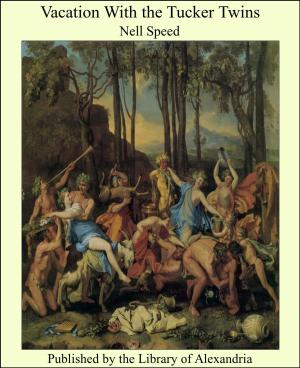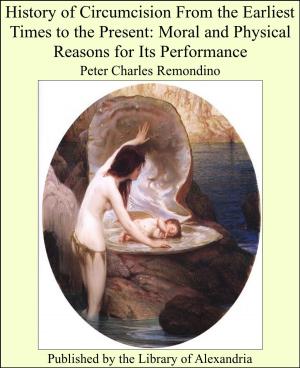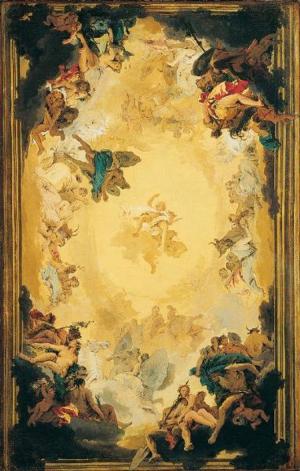Genius in Sunshine and Shadow
Nonfiction, Religion & Spirituality, New Age, History, Fiction & Literature| Author: | Maturin Murray Ballou | ISBN: | 9781465548795 |
| Publisher: | Library of Alexandria | Publication: | March 8, 2015 |
| Imprint: | Language: | English |
| Author: | Maturin Murray Ballou |
| ISBN: | 9781465548795 |
| Publisher: | Library of Alexandria |
| Publication: | March 8, 2015 |
| Imprint: | |
| Language: | English |
The ever-flowing tide of time rapidly obliterates the footprints of those whom the world has delighted to honor. While it has caused heroic names, like their possessors, to lapse into oblivion, it has also shrouded many a historical page with the softened veil of distance, like ivy-grown towers, rendering what was once terrible now only picturesque. In glancing back through thousands of years, and permitting the mind to rest on the earliest recorded epochs, one is apt to forget how much human life then, in all its fundamental characteristics, was like our own daily experience. There never was a golden age; that is yet to come. The most assiduous antiquarian has only corroborated the fact that human nature is unchanged. Conventionalities, manners and customs, the fashions, may change, but human nature does not. As an example of the mutability of fame, we have only to ask ourselves what is actually known to-day of Homer,[1] Aristophanes, and their renowned contemporaries, or even of our more familiar Shakespeare?[2] Of the existence of the first named we have evidence in his two great epics, the Iliad and the Odyssey; but, though deemed the most famous poet that ever lived, we do not even know his birthplace. "Ten ancient towns contend for Homer dead, Through which the living Homer begged his bread." The cautious historian only tells us that he is supposed to have flourished about nine hundred years before the time of Christ; while there are also learned writers who contend that no such person as Homer[3] ever lived, and who attribute the two most famous poems of antiquity to various minstrels or ballad-mongers, who celebrated the "tale of Troy divine" at various periods, and whose songs and legends were fused into unity at the time of Pisistratus. Over the personality of Aristophanes,[4] the great comic poet of Greece, who is supposed to have flourished some five or six hundred years later than Homer, there rests the same cloud of obscurity, and he is clearly identified only by eleven authentic comedies which are still extant, though he is believed to have written fifty. Of Shakespeare, born some two thousand years later (1564), how little is actually known beyond the fact of his birthplace! Even the authorship of his plays, like that of Homer's poems, is a subject of dispute. Perhaps, however, this loss of individuality but adds to the influence of the poet's divine mission. The really great men of history, benefactors of their race, are those who still live in the undying thoughts which they have left behind them
The ever-flowing tide of time rapidly obliterates the footprints of those whom the world has delighted to honor. While it has caused heroic names, like their possessors, to lapse into oblivion, it has also shrouded many a historical page with the softened veil of distance, like ivy-grown towers, rendering what was once terrible now only picturesque. In glancing back through thousands of years, and permitting the mind to rest on the earliest recorded epochs, one is apt to forget how much human life then, in all its fundamental characteristics, was like our own daily experience. There never was a golden age; that is yet to come. The most assiduous antiquarian has only corroborated the fact that human nature is unchanged. Conventionalities, manners and customs, the fashions, may change, but human nature does not. As an example of the mutability of fame, we have only to ask ourselves what is actually known to-day of Homer,[1] Aristophanes, and their renowned contemporaries, or even of our more familiar Shakespeare?[2] Of the existence of the first named we have evidence in his two great epics, the Iliad and the Odyssey; but, though deemed the most famous poet that ever lived, we do not even know his birthplace. "Ten ancient towns contend for Homer dead, Through which the living Homer begged his bread." The cautious historian only tells us that he is supposed to have flourished about nine hundred years before the time of Christ; while there are also learned writers who contend that no such person as Homer[3] ever lived, and who attribute the two most famous poems of antiquity to various minstrels or ballad-mongers, who celebrated the "tale of Troy divine" at various periods, and whose songs and legends were fused into unity at the time of Pisistratus. Over the personality of Aristophanes,[4] the great comic poet of Greece, who is supposed to have flourished some five or six hundred years later than Homer, there rests the same cloud of obscurity, and he is clearly identified only by eleven authentic comedies which are still extant, though he is believed to have written fifty. Of Shakespeare, born some two thousand years later (1564), how little is actually known beyond the fact of his birthplace! Even the authorship of his plays, like that of Homer's poems, is a subject of dispute. Perhaps, however, this loss of individuality but adds to the influence of the poet's divine mission. The really great men of history, benefactors of their race, are those who still live in the undying thoughts which they have left behind them















